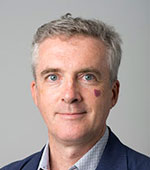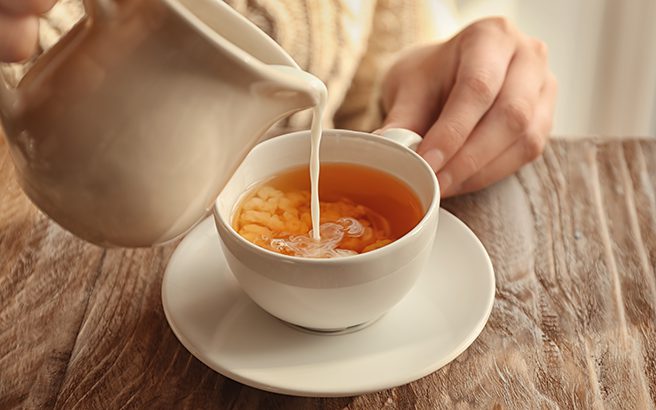 Paul Brennan, Section Head of Genetics at the International Agency for Research on Cancer and a World Cancer Research Fund (WCRF) scientist, discusses the link between the nation’s favourite drink and oesophageal cancer.
Paul Brennan, Section Head of Genetics at the International Agency for Research on Cancer and a World Cancer Research Fund (WCRF) scientist, discusses the link between the nation’s favourite drink and oesophageal cancer.
I, like most people who grew up in Britain, am a true believer in the miraculous qualities of popping the kettle on and having a brew. There are few things that can’t be solved by sitting down and mulling them over while having a cup of tea. There are some important findings from our research that can help ensure you don’t increase your risk of oesophageal cancer, the seventh most common cancer in the world, when having your cup of tea.
What does the science say?
Our research focused on the Golestan province in north-east Iran, an area that forms the western end of the so-called ‘Asian oesophageal cancer belt’. I was intrigued as to why this region was said to have one of the highest reported rates of oesophageal cancer worldwide. The province has been the subject of investigation for decades; between 1968–79, investigators found that, rather than the usual factors such as smoking and alcohol, the high rates of cancer in the Golestan province are due to local habits such as smoking opium, low intake of fruit and vegetables, and drinking very hot tea (hotter than 75°C).
So, in 2004, the Golestan Cohort Study was launched with colleagues from Tehran University Medical School, which traced 50,000 people for over ten years; the first large-scale population-based study in western and central Asia. The study came to the same conclusion as the original, that drinking very hot tea increases the risk of oesophageal cancer. It also found the following risk factors increase the risk of cancer: unpiped water, tooth loss, and indoor air pollution.
The silver lining
There is, however, a silver lining; you’ll be delighted to hear that the evidence does not suggest that we should all immediately stop drinking tea. It is not hot tea alone that causes the high incidence of oesophageal cancer, but rather a combination of hot tea and the other factors mentioned. Our research found that 76 per cent of oesophageal cancers in the region were due to a combined exposure to these factors. So it doesn’t mean that tea lovers can’t enjoy a hot drink. However, with around 500,000 new cases of oesophageal cancer worldwide each year, prevention is key. WCRF’s research has shown that people can also reduce their risk of oesophageal cancer by being a healthy weight and cutting down on alcohol.
There are two conclusions that we should take away from this. First, we should all take preventative measures to decrease our likelihood of developing oesophageal cancer as, sadly, the survival rate is still very low; WCRF’s Cancer Prevention Recommendations are an excellent guide for this. Second, the six exposures that we found are all preventable through education and improving basic social infrastructure in the local area. Therefore, it’s important that we apply these findings to public health and policy to have an impact on reducing rates of cancer.
